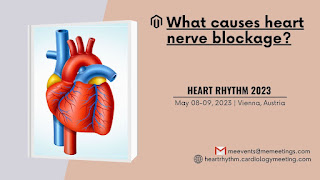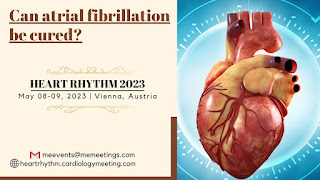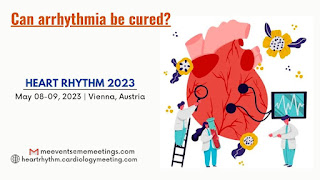What causes heart nerve blockage?
The pounding of your heart is controlled by
electrical signals. Conduction is the method by which they inform your heart
muscle when to contract. Normal heartbeat timing is generated in the upper
chambers of the heart (atria) by a mechanism known as the sinus node. When you
have a heart block, the electrical signals that normally travel from the atria
to the ventricles are disrupted.
Congenital heart block occurs when a heart block
is present at birth. This condition is caused by either a disorder your mother
had throughout her pregnancy or heart abnormalities you were born with. Most people acquire heart block as they get
older because the wires that connect the top and bottom of the heart can
deteriorate and eventually collapse. Sometimes this happens as we become
older. Any process that damages these
heart wires can cause a heart block.
Coronary artery disease, both with and without a
heart attack, is one of the most common causes of heart block. Cardiomyopathies, or disorders that weaken
the heart muscle, can also cause wire damage.
Any disease that can infiltrate the heart, such as sarcoidosis and
certain malignancies, or any disease that causes cardiac inflammation, such as
some autoimmune diseases or infections, can cause heart block. Wire failure can
also be caused by electrolyte imbalances, particularly excessive potassium
levels.
Symptoms of heart block:
Symptoms depend on the type of heart block you
have:
First-degree heart block may have no bothersome
symptoms.
Second-degree heart block might cause:
- Dizziness
- Fainting
- The feeling that your heart skips beats
- Chest pain
- Trouble breathing or shortness of breath
- Nausea
- Fatigue
Third-degree heart block, which can be fatal,
might cause:
- Intense tiredness
- Irregular heartbeats
- Dizziness
- Fainting
- Cardiac arrest
Heart block prevention relies mostly on risk
factor management. A healthy lifestyle improves general health, including heart
health. Exercise regularly, consume a well-balanced diet, and avoid smoking. Understanding
the hazards of your medications and discussing them with your doctor can help
lower the chance of medicine-induced heart block.



Comments
Post a Comment